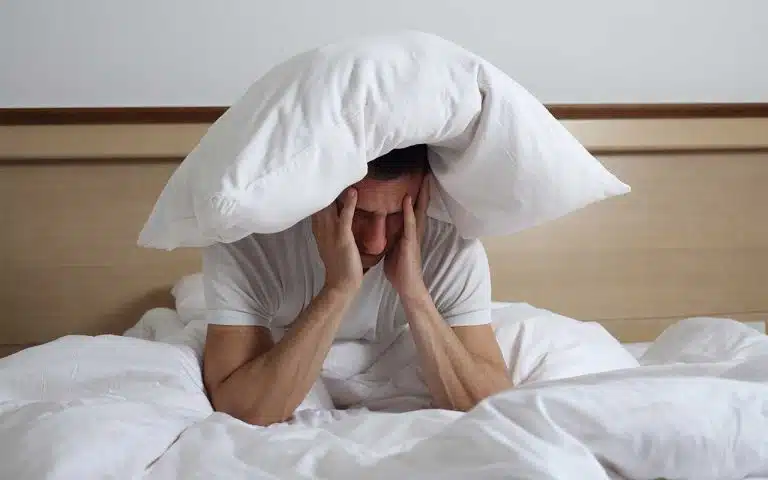Cocaine is a potent, short-acting stimulant drug that can cause severe sleep abnormalities, including insomnia and other sleep disorders.
Short-Term Effects Of Cocaine On Sleep
Cocaine works by trapping the neurotransmitter dopamine in the synapses of the brain. By keeping dopamine in place, the drug increases bodily energy and wakefulness by a huge degree, releasing a wave of pleasure in the process.
These side effects immediately suppress fatigue and any urge to sleep, and those who have taken cocaine often feel hyped, elated, manic, or panicky in the extreme.
If the drug is used over and over each time its effects wear off, for hours or days at a time, it can result in exhaustion and severe sleep deprivation once the binge finally ends. Some may then sleep for a full day or more after a particularly excessive binge.
Cocaine use also strongly interferes with rapid eye movement (REM) sleep, the stage of sleep where you experience dreams. REM interference can significantly lower total sleep time, and REM sleep is critical for managing emotional memory and mood.
Long-Term Effects Of Cocaine On Sleep
The suprachiasmatic nucleus (SCN) is a portion of the brain that deals with your body’s circadian rhythm, internal clock, and sleep patterns.These are all important for regulating sleep, feeding, body temperature, hormones, and much more.
Cocaine dependence and repeated substance use disrupts this system and, in turn, your body’s ability to regulate normal sleeping patterns and physical or mental activity.
This can lead to sleep disorders including:
- insomnia, an inability to fall asleep when you should
- hypersomnia, excessive sleepiness during the day, even after sleeping
Cocaine Withdrawal & Occult Insomnia
Unfortunately, sleep problems that form due to cocaine abuse tend to be hard to resolve, and can often last well into the recovery period following cocaine withdrawal.
In one study, NIH-funded researchers used polysomnographic devices to determine sleep quality after a period of long-term use. The researchers found that, even if you stop using cocaine and are sleeping better, you may really be sleeping worse.
Specifically, cocaine withdrawal appears to cause slow wave sleep (SWS) impairment, and significantly interferes with sleep efficiency and length of sleep.
SWS is critical for memory formation and learning, and is the stage of sleep where the body and brain are most active healing, growing, and restocking energy for the day ahead.
This deep sleep disruption is sometimes known as occult insomnia. If occult insomnia persists, you may find it more difficult to retain information or focus on your recovery during a drug rehab program.
Cocaine Addiction Treatment
Poor sleep quality is only one of the many reasons to stop using cocaine. But drug addiction, detox, withdrawal symptoms, and cravings can be incredibly difficult to overcome on your own.
That’s why substance abuse treatment centers offer proven and professional inpatient and outpatient treatment programs personalized to best suit you and your needs.
To learn more about options and treatment outcomes for cocaine use disorder, please contact us today.
Written by Ark Behavioral Health Editorial Team
©2024 Ark National Holdings, LLC. | All Rights Reserved.
This page does not provide medical advice.
Journal of Addiction Research and Therapy - Differential Effects of Addictive Drugs on Sleep and Sleep Stages
National Institute on Drug Abuse (NIDA) - Chronic Cocaine Abusers Have Occult Insomnia in Early Abstinence
MedlinePlus - Substance use - cocaine

Questions About Treatment?
Ark Behavioral Health offers 100% confidential substance abuse assessment and treatment placement tailored to your individual needs. Achieve long-term recovery.
100% confidential. We respect your privacy.
Prefer Texting?
Our friendly support team is here to chat 24/7. Opt out any time.








 Learn More
Learn More








